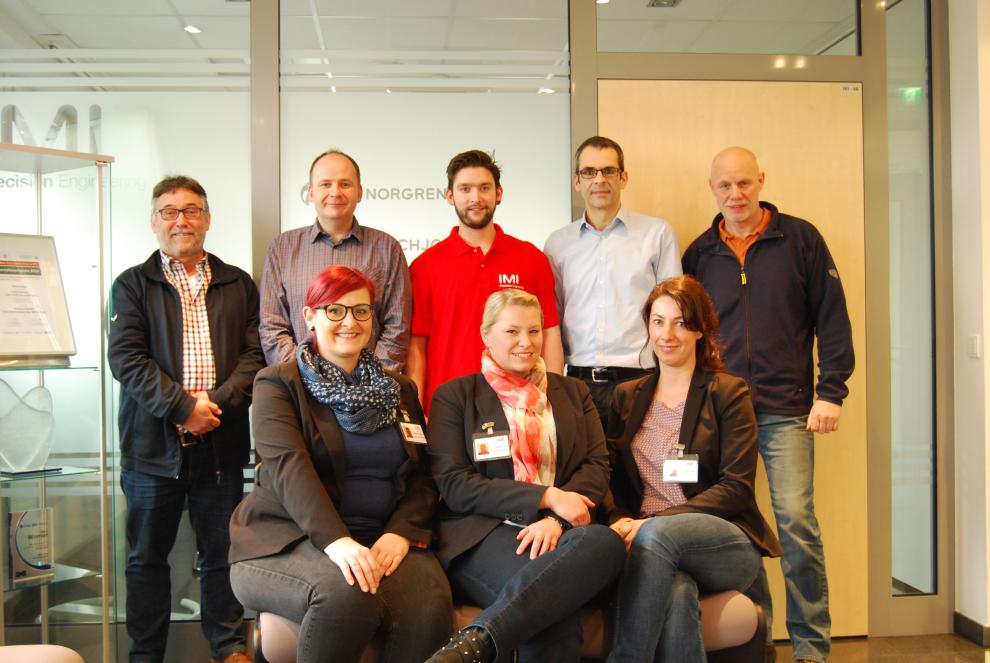Master students develop an organisational diagnosis for communication practices
Collaborative research project with Norgren GmbH, of the IMI Precision Engineering Group
As part of a recent research project, master students in the International Management and Psychology M.Sc. programme of Rhine-Waal University of Applied Sciences conducted an organisational diagnosis of formal communication practices at IMI Precision Engineering.
Kleve/Kamp-Lintfort, 1 February 2016: The regional collaboration between Rhine-Waal University of Applied Sciences and the Alpen-based Norgren GmbH began when IMI Precision Engineering approached Professor Dr Nicki Marquardt, Professor of Work and Organisational Psychology at the University. Norgren GmbH is an important part of the IMI Precision Engineering Group, a leading manufacturer and system provider in the area of industrial automation.
The resulting research project involved three students of the Faculty of Communication and Environment – Vera Hillen, Annika Mader and Lina Riedel – who analysed the standard communication practices of the company. The goal was to examine how employees regard the organisation of meetings and the flow of information within the company.
The three students developed their own methodology for the project, which they employed during behavioural observations, face-to-face interviews and surveys among employees. The project focused in particular on general communication, meeting practices, documentation and communication during shift changes. Following a comprehensive analysis of the collected data, the full project results – as well as recommended actions – were presented to the company’s board of directors, the staff association and all employees.
This collaborative project provided students with a valuable opportunity to apply their theoretical knowledge in combination with methodological, analytical and social competencies in a real-world situation. The project coordinator, Professor Dr Nicki Marquardt, praised students for their organisational diagnosis, which was conducted in an impressively independent and methodologically sound manner.

